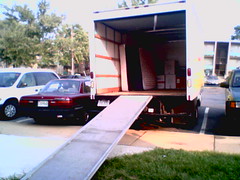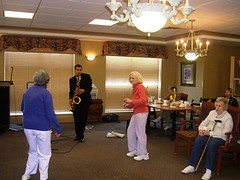By Bob Gregory
If you have siblings that live in different parts of the
state or even country, then you may be concerned where to move your elderly
parent as they enter a Senior Facility such as an Assisted Living Facility or a
Nursing Home. There are a number of
points you need to consider and I suggest you involve your siblings before
discussing with your parent. You may
find the “truthful” answers to the question “who gets mom (or dad)” may be
upsetting to your parent if disclosed in an open, blunt and possibly spirited
debate between you and your siblings. If you are spearheading this
conversation, I encourage you to come to your own conclusion and I’ll give you
a few pointers. Yes, I have been here
before and it wasn’t very pleasant. My
best advice to you is to, first and foremost, do what is best for your parent!
Here are some questions that need to be answered—honestly!
- Is it possible to keep mom/dad in the town they currently live? This will help tremendously so they are surrounded by friends and family that may reside in the same town. If neither you nor your siblings live in the same town as your parent, then this is a little more difficult as you may find visiting and checking on your parent challenging—especially if the Senior Facility is having issues with your parent and wants to meet with you!
- Which sibling is most likely to remain for the longest time in the city they currently live? Once you get your parent in a Senior Facility, you do not want to have to move them if you can avoid it. The move to a Senior Facility will be stressful enough, but to move several times in a short span is not good for your parent. You need to choose a sibling that is stable and established in their own city.
- Which sibling is most
likely to visit and care for your parent?
This is the hard one! We all
believe we will be there for our parents, but the truth is most of us have
families that demand more time han we have to give. Some of us travel for work, have small children, or possibly s
pecial needs individuals within our own families. There’s this practice or that lesson and you know how many games every season you have to attend. The thought of running by a couple of times a week in the evening or once each weekend sounds very doable but think of your family schedule, work schedule and all the chores you try to cram in on a weekend—will you visit?
(Photo credit: Ed Yourdon) - Who has the best relationship with your parent? No, I’m not asking who the favorite child is—you already know the answer to that question. I am asking who your parent respects the most to make decisions, provide guidance and care for them.
- Where would your parent choose to live? This answer will make you smile or cry but either way, your parent should have a say. I hope the feeling is mutual on the sibling’s side as it would make the move very comfortable for both.
- Which sibling can keep your parent in the same region of the country? If your parent lives in Florida, a move to New York may not sound appealing. Your parent may not wish to adjust to cold, ice and snow. I’m not picking on our northern friends, the opposite can be true—not everyone loves the heat!
- Which sibling is most
financially stable? In this
context, I don’t mean who can pay the bill for the Senior Facility, but if
you or a sibling are having trouble making ends meet, your parent is going
to get a lot less attention if you are struggling financially. You may also find yourself in a situation
wh
ere you have to move to find work.
Moving Day (Photo credit: Gavin St. Ours) - Who lives in an area that provides choices in Senior Facilities and medical treatment? If your parent needs special medical treatment, make sure you place them where they can continue to receive that type of treatment. Also, if you or your sibling lives in a very rural area or a long way from a city, you may not have many or even any choices in Senior Facilities.
- This is more of a point than a question but consider the sex of your parent and the sibling. I’m not being sexist here, but if you take a parent shopping or on an outing and they need help in the restroom, same sex can make the task less stressful for both.
Make sure you address these questions with your siblings and
have a plan you all agree to before you sit down with your parent. The answers to some of these questions should
become the cornerstone of your decision as to who your parent should live
near. Be sure the conversation is about
your parent’s wellbeing and care and not about what is easiest for you or your
siblings. I hope you find yourself in a
situation where there are options from which your parent can choose, but if
not, do what’s best for your parent.
If you find you need an Assisted Living Facility, Nursing
Home or any other type of Senior Facility, I hope you will consider www.seniorfacilityfinder.com.
If you would like to contribute your thoughts and ideas,
please leave them in our comment section. We want to hear them. Helping people
care for themselves or their loved ones is what we care about.
We look forward to reading yours.
Bob Gregory is an advocate
for Seniors and is one of the founders of www.seniorfacilityfinder.com. At SeniorFacilityFinder.com, we are dedicated
to helping families get the Elder Care help they need without having to provide
their personal information! If find you need an assisted living facility or
other type of senior facility, please consider www.seniorfacilityfinder.com







































